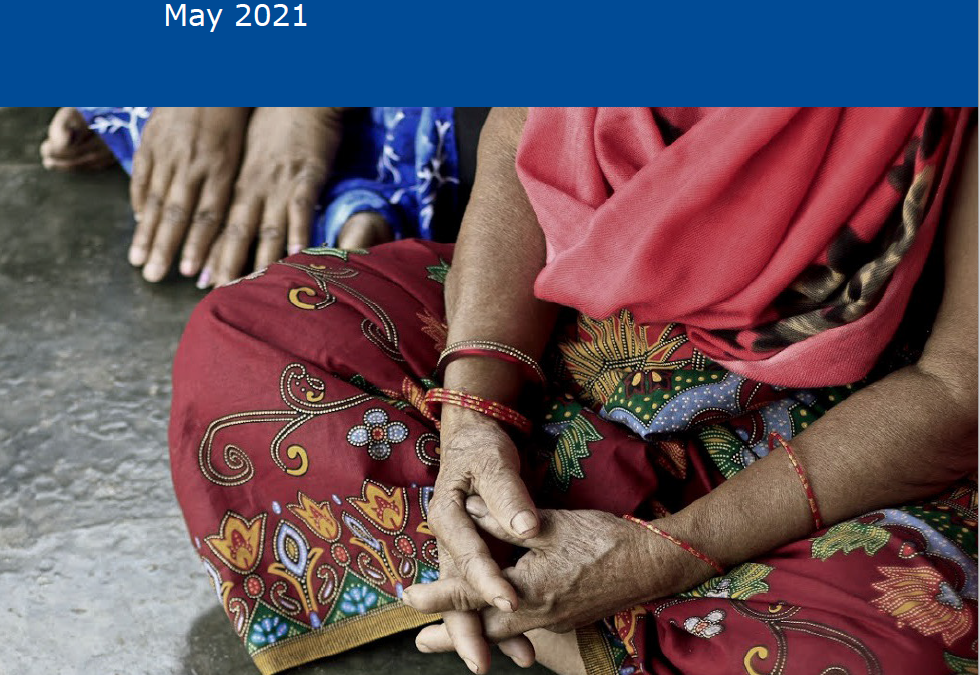
May 14, 2021 | Advocacy, News, Publications
The ICJ launched a new briefing paper Nepal: Transitional Justice Mechanisms with Gender Perspective in a webinar held on 12 May 2021.
The discussion included the need to give practical effect to Nepal’s obligation under international law to ensure the right to an effective remedy to the victims, including women victims of sexual and gender-based violence during the country’s internal armed conflict (1996 – 2006). Participants focused in particular on the need to ensure that gender issues are incorporated in the transitional justice mechanism.
The Honourable Kalyan Shrestha, former Chief Justice of the Supreme Court of Nepal and ICJ Commissioner, stressed the importance of the role of the Supreme Court of Nepal in establishing landmark jurisprudence on transitional justice.
Justice Shrestha explained how despite the fact that the country had established a progressive Constitution and amended legislation to provide for equality, non-discrimination and access to justice, women victims and survivors of a decade long armed conflict continued to face real barriers to justice. These including short periods of statute of limitations preventing the filing rape and sexual violations cases and lack of support mechanisms for women, which compounded existing economic pressure and social obstacles.
Bandana Rana, Member of the UN Committee on the Elimination of Discrimination against Women (CEDAW), addressed the situation of sexual and gender – based violence against women in Nepal during the armed conflict. She said that Nepal was bound by clear international legal obligations, including under the CEDAW and other treaties. Yet the Nepali government has not taken effective measures to ensure access to justice and the right to an effective remedy to the victims of SGBV during the conflict.
Laxmi Pokharel, ICJ Legal Adviser, summarized the ICJ’s briefing paper on “Nepal: Transitional Justice Mechanisms with Gender Perspective”. The Paper’s major recommendations, to the Government of Nepal, are:
- Amend the Truth and Reconciliation Act (TRC) in line with the Supreme Court’s order and Nepal’s international obligations;
- Ensure participatory, consultative processes while amending the TRC Act;
- Ensure the participation of women at all levels of recruitment, including in the formation of the recommendation committee, in the appointment of Commissioners of both the TRC and the Commission on Investigation of Disappeared Persons (COID) and at all levels of staffing with a view to ultimately achieving gender parity;
- Provide gender-sensitive trainings to the Commissioners and staff of the Commissions in order to enhance their capacity to address gender issues in their operation;
- Take all necessary steps to amend the Criminal Code to remove the statutory limitation for filing incidents of rape and other sexual violence, including in relation to acts committed during the armed conflict, in order to ensure justice for all victims;
- Ensure that amnesties and mediation are not used to replace criminal responsibility for gross violations of human rights, including rape and other sexual violence.
- Incorporate a gender-responsive approach in all aspects of the Commissions’ work, including in the interpretation and application of the mandate of the Commissions, prosecution of perpetrators and reparation to the victims and survivors;
- Incorporate an approach in the Commissions’ work that does not restrict women’s experiences during the armed conflict only to bodily harm suffered, but also takes account of structural gender biases and its consequences during the period of a conflict;
- Design and implement gender-friendly procedures for investigation, including statement taking, victim and witness protection and other activities of the Commissions;
- Design and implement specific reparation policies to address the unique needs of women victims;
- Ensure that the gendered aspects of the armed conflict, including its causes and consequences are incorporated in the final report of the Commissions;
- Take effective measures to ensure the widest possible dissemination of the final report of the Commissions in order to ensure that the wider population is made aware of the truth, most especially in relation to women.
The webinar was jointly organized by ICJ in collaboration with the United Nation’s Office of the High Commissioner for Human Rights (OHCHR) and UN Women. This event was organized under the ‘Enhancing Access to Justice for Women in Asia and the Pacific’ project funded by the Swedish International Development Cooperation Agency (SIDA). Due to the COVID – 19 pandemic the webinar was conducted virtually and live broadcasted on Facebook. It was conducted in English language and simultaneous translation in Nepali language was also available.
Contact
Laxmi Pokharel, ICJ Legal Adviser – Nepal, email: laxmi.pokharel(a)icj.org
Download
Briefing paper on “Nepal: Transitional Justice Mechanisms with Gender Perspective” (full report in PDF)
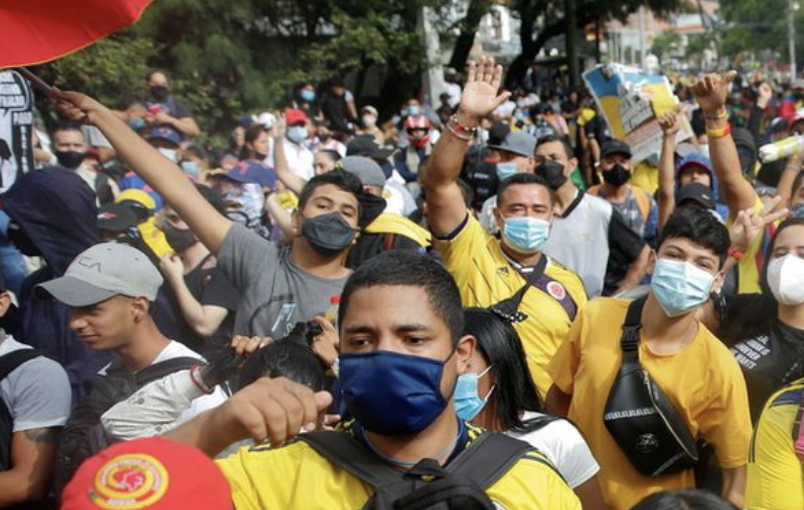
May 12, 2021 | Editorial, Noticias
En esta columna de opinión, el Comisionado de la CIJ, Rodrigo Uprimny, presenta siete medidas para superar la grave crisis que atraviesa Colombia, y para que el Gobierno y los líderes políticos hagan esfuerzos por desescalar la violencia y, a su vez, escalar la protección de los derechos humanos.
Esta crisis actual es muy grave. En pocos días han muerto más de 30 personas, varias de ellas por balas de la policía. Hay además numerosos desaparecidos. Y ha habido actos de vandalismo criminal extremo, como el intento de incinerar en un CAI a varios agentes de la policía.
Además de grave, esta crisis es compleja pues resulta de una combinación de tensiones viejas y nuevas, que se han acumulado y explotaron con ocasión del proyecto de reforma tributaria. Pero a pesar de su complejidad y gravedad, que hacen que la crisis sea difícil de resolver, o tal vez precisamente por eso, es necesario tomar medidas para evitar que se agrave más.
El Gobierno y los líderes políticos y sociales deben hacer esfuerzos por desescalar la violencia, para lo cual es necesario escalar los derechos humanos, poniéndolos en el centro del manejo de la crisis. Propongo entonces siete medidas orientadas en esa dirección.
Primero, el presidente y en general todo el alto Gobierno deben condenar inequívocamente los abusos de la Fuerza Pública y señalar que esos actos no serán tolerados y serán investigados y sancionados. Infortunadamente esas declaraciones no han ocurrido.
Segundo, los promotores del paro y quienes compartimos la protesta debemos condenar no sólo los abusos policiales sino también los actos de violencia en las protestas.
Tercero, la Defensoría y la Procuraduría deben recordar que son instituciones independientes del Gobierno y que deben tomar en serio y cumplir su función constitucional de defender los derechos humanos y denunciar los abusos de las autoridades. Infortunadamente, a pesar del compromiso de sus funcionarios, las intervenciones de esos organismos han sido débiles por la cercanía de sus jefes con el Gobierno.
Cuarto, las autoridades deben detectar y sancionar a quienes en las protestas comenten actos vandálicos, especialmente contra otras personas, pero garantizando la protesta pacífica, sin estigmatizarla, y evitando cualquier exceso en el uso de la fuerza.
Por esa razón, quinto, el Gobierno y la Fuerza Pública deben cumplir estrictamente la sentencia de tutela de la Corte Suprema de septiembre 2020, que al amparar el derecho a la protesta pacífica ordenó a las autoridades que se abstuvieran de estigmatizar la protesta y que adoptaran protocolos para evitar excesos en el uso de la fuerza.
Pero esa sentencia no ha sido cumplida en estas protestas, por lo cual los peticionarios de esa tutela, que fue apoyada por varias organizaciones de derechos humanos, entre las cuales está Dejusticia, presentaron un incidente de desacato contra el Gobierno.
Sexto, la Fiscalía debe investigar todas las violencias ocurridas en estas protestas, incluidas las de la policía, pues si el delito es claramente contrario a la función constitucional de la Fuerza Pública, el caso debe ir a la justicia ordinaria, conforme a la jurisprudencia constitucional y al artículo 3 de la Ley 1407.
Séptimo, debemos buscar el apoyo de organismos internacionales de derechos humanos. Por eso, en vez de obstruir la labor de verificación de la Oficina en Colombia de la Alta Comisionada de Derechos Humanos de Naciones Unidas, como intentó hacer la viceministra de Relaciones Exteriores, el Gobierno debería facilitar la presencia de otras instancias internacionales, como la Comisión Interamericana, para que nos ayuden a enfrentar la crisis.
Esas medidas y otras del mismo carácter, que ponen los derechos humanos en el centro del manejo de la crisis, ayudarían a desescalar las violencias, lo cual facilitaría al mismo tiempo los necesarios diálogos en la búsqueda de acuerdos nacionales genuinos para enfrentar los problemas y las tensiones subyacentes que alimentaron estas protestas.
Notas:
El Comisionado Uprimny también es Investigador en Dejusticia y miembro del Comité de Derechos Económicos, Sociales y Culturales.
Esta columna se publicó por primera vez en El Espectador el 9 de mayo de 2021.
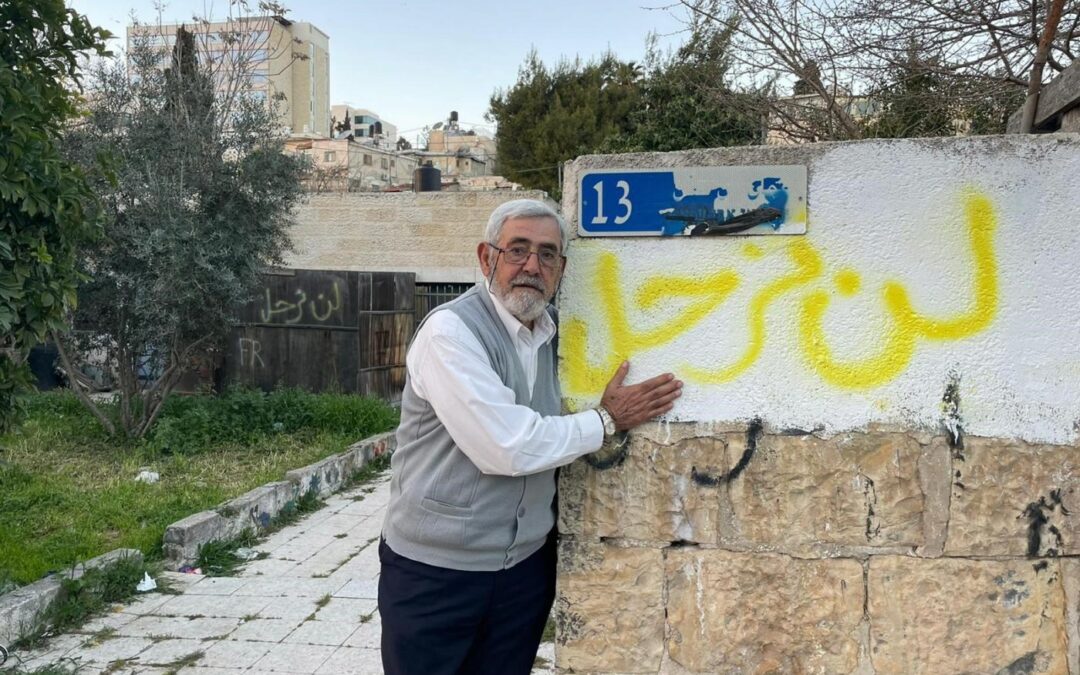
May 11, 2021 | News
The International Criminal Court (ICC) must immediately investigate the forced eviction of Palestinian families and residents in Sheikh Jarrah and other neighbourhoods in East Jerusalem, as well as any indiscriminate and disproportionate attacks against civilians in the Gaza Strip, the ICJ said today.
The investigation must establish whether any serious violation of international humanitarian law, such as indiscriminate or disproportionate attacks against civilians, the forced deportation of Palestinians and the transfer of Israeli settlers into occupied East Jerusalem, as well as the extensive destruction and appropriation of property, have taken place in Sheikh Jarrah and in Gaza. Following the opening of an investigation by the ICC Office of the Prosecutor, if warranted, Israeli officials should be prosecuted for such crimes to ensure accountability. As confirmed by the ICC Pre-Trial Chamber I, the Court’s territorial jurisdiction “extends to the territories occupied by Israel since 1967, namely Gaza and the West Bank, including East Jerusalem.”
Evictions against Palestinians in Sheikh Jarrah were ordered by the Jerusalem District Court following legal proceedings initiated by Israeli settlers organizations under Israeli law. The Supreme Court was due to rule on 10 May 2021 on challenges against evictions brought by Palestinian families, yet, it decided to postpone the hearing at the request of Israel’s Attorney-General.
“Evictions in Sheikh Jarrah are part of a cynical campaign by the Israeli authorities to purge occupied East Jerusalem from its Palestinian civilian population,” said Said Benarbia, the ICJ MENA Director.
The ICC must also ensure accountability for unlawful attacks targeting civilians and civilian objects in connection to the hostilities between Israel and Palestinian armed groups in Gaza. Since 2007, Israel has imposed a full closure on Gaza, which has resulted in a major humanitarian crisis, and has led to significant escalation of hostilities in 2008-09, 2012 and 2014, where thousands of Palestinians have been killed and injured. On 10 May 2021, Hamas started firing rockets against Israel following a crackdown on Palestinian worshippers in the al Aqsa compound in Jerusalem. In response, Israel has carried out multiple airstrikes in Gaza, which have reportedly caused the death of at least 24 people, including nine children. All parties to the conflict are prohibited from conducting indiscriminate and disproportionate attacks, which may amount to war crimes under the Rome Statute.
“The ICC must ensure that all those responsible for ordering and carrying out these attacks be held criminally accountable,” Benarbia added.
Since April 2021, Palestinians peacefully demonstrating against the evictions in Sheikh Jarrah, a decades-long legal battle, have been subjected to violence by Israeli settlers and Israeli security forces. Earlier this year, the Jerusalem District Court ordered that several Palestinian families be evicted from the neighborhood. According the UN Office of the High Commissioner for Human Rights, “at least 218 Palestinian households in East Jerusalem, including the families in Sheikh Jarrah, have eviction cases filed against them”, and overall “970 people, including 424 children, [are] at risk of displacement.”
As part of the Israeli crackdown on Palestinians, Israeli security forces have also been firing tear gas and employing other less-lethal weapons against people praying at the Al Aqsa mosque in Jerusalem purportedly in crowd-control operations. According to the Palestinian Red Crescent, more than 200 demonstrators have been injured as a result of the use of such less-lethal weapons.
Israeli forces have also been preventing gatherings of Palestinians at Damascus Gate in East Jerusalem during the night hours of the month of Ramadan when many Muslims gather for prayer and breaking of the fast at sunset, and have responded with excessive force to the ensuing demonstrations.
Israel has a duty to respect the right to peaceful assembly and freedom of religion of Palestinians in East Jerusalem. Israel’s use of excessive force against Palestinian demonstrators and the crackdown on Palestinian worshippers violate its obligations under international human rights law
“Israeli authorities must respect and ensure the right of Palestinians to protest and challenge decades of prolonged unlawful occupation and related abusive practices, and immediately end the use of disproportionate and unlawful force to disperse protesters”, Benarbia said.
Contact
Said Benarbia, Director, ICJ Middle East and North Africa Programme, t: +41-22-979-3817; e: said.benarbia(a)icj.org
Asser Khattab, Research and Communications Officer, ICJ Middle East and North Africa Programme, e: asser.khattab(a)icj.org
You can read this press release in Arabic here or download a PDF version of it in English here.
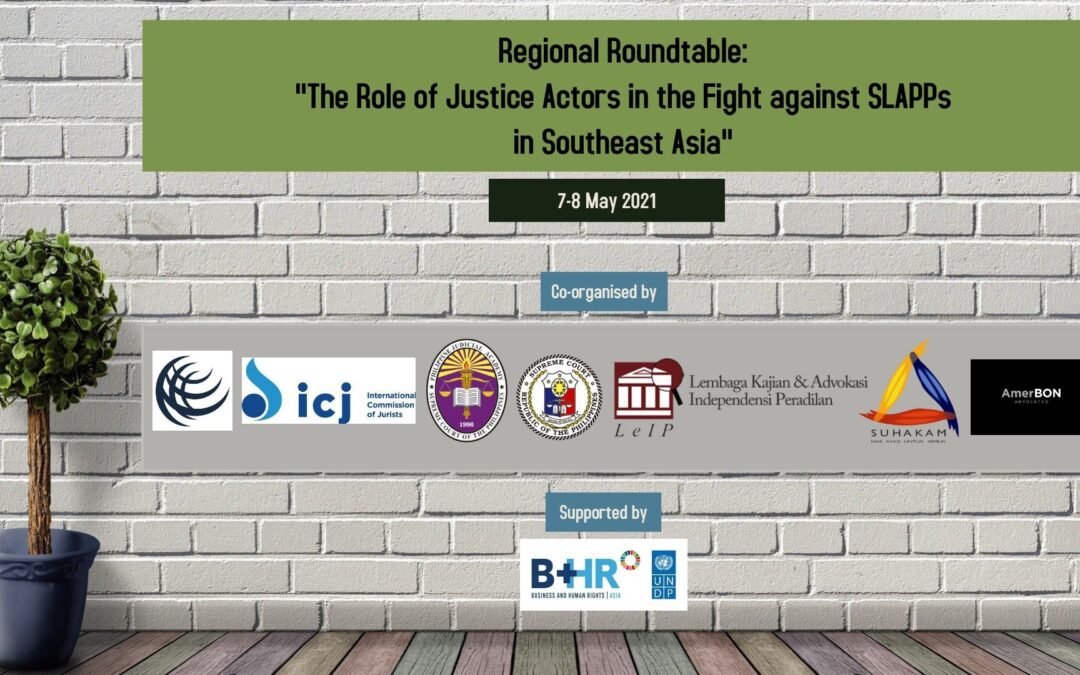
May 9, 2021 | News
Southeast Asian governments must diminish the misuse of lawsuits to harass and silence civil society, so-called SLAPP suites, said more than 70 international experts, judges, public prosecutors, lawyers, members of civil society organizations, academics, and members of executive and State institutions from Indonesia, Malaysia, the Philippines, and Thailand at a discussion convened by the ICJ and partners on 7 and 8 May.
The participants at the regional dialogue on “The Role of Administration of Judicial Authorities and Legislators in the Fight against Strategic Lawsuits Against Public Participation (SLAPPs) in Southeast Asia” addressed the proliferation of SLAPP suits, which SLAPP suits are undertaken with the principal objective of curtailing or deterring public criticism or opposition to certain activities by the entity initiating the legal action. SLAPP lawsuits typically have a “chilling effect” on the exercise of freedom of expression and other human rights and fundamental freedoms, including freedom of opinion and expression (article 19 of the International Covenant on Civil and Political Rights); freedom of peaceful assembly (article 21); and the right to take part in the conduct of public affairs (article 25).
Irene Khan, Special Rapporteur on the promotion and protection of freedom of opinion and expression, stated that it is necessary to bring exiting laws in compliance with international law and standards, including with the principles of legality, proportionate, necessity, legitimate purpose, and non-discrimination, and called for defamation laws to be decriminalized.
Prof. Surya Deva, Vice-Chairperson, the Working Group on the issue of human rights and transnational corporations and other business enterprises, referred to several anti-SLAPP provisions that, in his view, are inadequate, including section 161/1 and 165/2 of Thailand’s Criminal Procedure Code. He pointed out that while the legal reform needed, States also need to train relevant stakeholders who will make use of these. Internal or soft guidance can also be a helpful guideline on how to exercise discretion, and more resources should be allocated to raise awareness.
Several participants, while noting their duties to protect rights to access to justice and the power imbalance between the parties in SLAPP lawsuits, called for a robust legal frameworks and policies that prevent the filing SLAPPs in the first place and allow relevant authorities to identify, call out and dismiss them as soon as they are filed.
In the jurisdictions where such mechanisms exist, participants highlighted the need to address certain gaps to allow authorities to promptly and effectively exercise their power, and the importance of guidelines that can guide the relevant authorities on how to handle and proceed with SLAPPs in a coordinated effort to raise awareness among justice sector actors on this topic.
In the absence of a specific Anti-SLAPP legislation, participants also shared their experience using existing tools in their domestic laws as a basis in combating SLAPPs, including several provisions of the constitutions, other early dismissal mechanism provided in procedural laws, provisions under international laws, and encouraged their peers to think out of the box.
Reforming individual causes of action that commonly form the basis of SLAPPs, such as defamation, to ensure their compliance with international law and standards were also discussed by participants as another approach that the governments should consider, in combination with other measures.
Remedies for persons negatively affected by SLAPP lawsuits were encouraged.
The Workshop was conducted in collaboration with Business & Human Rights Resource Centre (BHRRC); Philippine Judicial Academy; the Supreme Court of the Republic of the Philippines; Lembaga Kajian dan Advokasi Independensi Peradilan (Indonesian Institute for Independent Judiciary or LeiP); Human Rights Commission of Malaysia (SUHAKAM) and AmerBON Advocates.
The speakers at the workshop were: representatives of all partner organizations; Nikhil Dutta, Global Programs Legal Advisor of the International Center for Not-for-Profit Law (ICNL); Joel Hernández García, Inter-American Commission on Human Rights’ Rapporteur on the Rights of Human Rights Defenders and Justice Operators; Irene Khan, Special Rapporteur on the promotion and protection of freedom of opinion and expression; and Prof. Surya Deva, Vice-Chairperson, the Working Group on the issue of human rights and transnational corporations and other business enterprises.
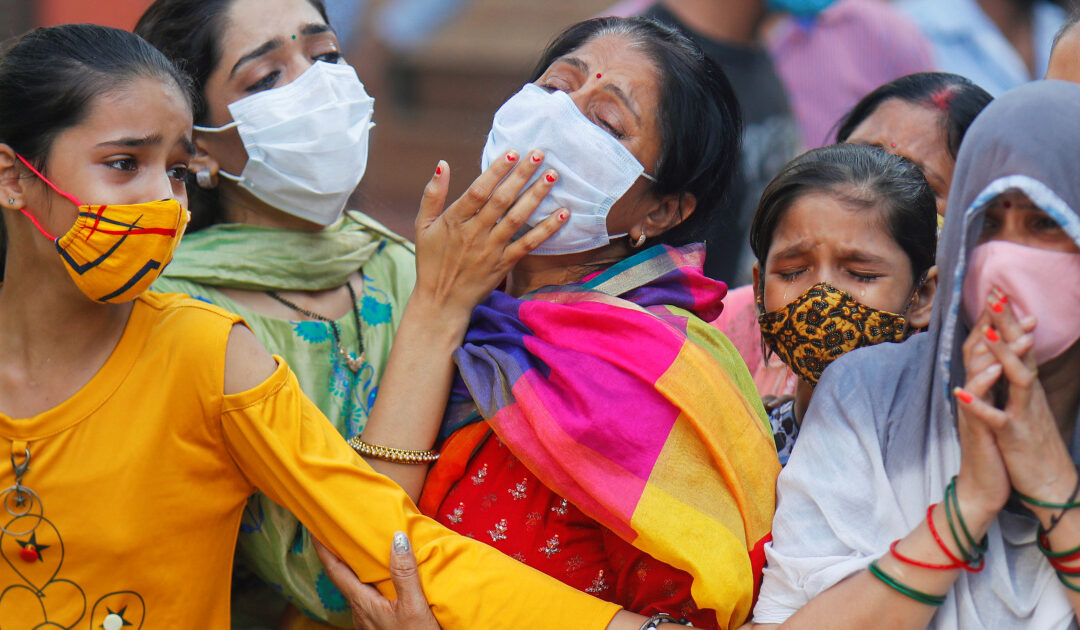
May 7, 2021 | News
As the European Union and India prepare for a meeting of their leaders on 8 May they should jointly commit to a strategy for protecting all people in India from the devastating second wave of the Covid-19 pandemic now ravaging the country, said the ICJ today.
India has faced unprecedented impact from the pandemic since 15 April, with some 400,000 daily cases and a daily death toll now officially around 4,000 and likely even higher. India’s healthcare system and infrastructure has strained to meet the needs of people for oxygen, medicines, testing, hospital beds, ambulances, and doctors. India, a vaccine-production powerhouse globally, has only vaccinated just over two percent of its population and is now facing severe shortage of vaccines.
“The scenes emerging from India are horrifying but unfortunately not unexpected. This global pandemic demands global cooperation and national competence and this is the moment for the EU and India to demonstrate cooperation and competence. The Indian government was lecturing the world about its performance instead of preparing for the predictable resurgence of the pandemic, and now it is busy silencing people demanding help or criticizing the government’s poor performance,” said Sam Zarifi, ICJ’s Secretary-General.
The ICJ added that the performance of the EU and its Member States in international cooperation to tackle COVID globally left much to be desired, particularly as they have resisted supporting a loosening of intellectual property restrictions that have hampered efforts at wider vaccine production and distribution.
“At the same time, the proposal by India and South Africa for removing global patent restrictions for vaccine protection was rejected by some of the wealthiest governments, including the EU, who seem more focused on economic interests rather than global responses to a global pandemic,” said Zarifi.
The EU has already agreed to assistance to India through its Civil Protection Mechanism and individual EU countries have delivered some needed supplies and vaccines.
“The EU and Member States should increase aid efforts to India and immediately reverse their opposition to waiving intellectual property restrictions to vaccine production under the World Trade Organization TRIPS agreement, especially now that the United States has indicated it would end its obstructionism. The EU should not be on the wrong side of history as the last obstacle to global vaccine production,” Zarifi said.
The ICJ also urged the EU to remind the Indian government of its obligations under international law and guarantees of the Indian Constitution to protect the rights of people in India to life and to health.
“The summit between the European Union and India brings together powerful States who should use this opportunity to align their actions at the global, regional, and national levels to protect people from the pandemic,” said Zarifi. “International law provides the framework for cooperation and both the EU and India must do a better job of complying with their international legal obligations.”
Additional Information
India’s judiciary has at various levels has severely criticized the Indian Central and State governments and issued orders for urgent remedial responses.
In particular, the Indian Supreme Court has ordered the central government to:
- ensure adequate supply of oxygen through provision of emergency buffer stock by the central government in collaboration with state governments;
- develop a national policy on admission to hospitals and in the interim ensure that no patient is denied access to hospitals or essential drugs; and
- recognize vaccines as a “valuable public good”.
The Supreme Court has also questioned the constitutionality of India’s vaccine policy due to differential pricing for state governments, the central government and private hospitals, stating that the government needs to revisit the policy so that it “withstands the scrutiny of Articles 14[right to equality] and Article 21[right to life] of the Constitution”.
Additionally, the Supreme Court has suggested that the Central Government take steps to ensure access to essential drugs as well as to enhance its healthcare workforce as needed, in line with India’s constitution and its international legal obligations.
As party to the International Covenant of Economic, Social and Cultural Rights, India is required to take all necessary measures to ensure the “prevention, treatment and control of epidemic” and to create conditions “which would assure to all medical service and medical attention in the event of sickness”. Further, these obligations, as stressed by the UN Committee on Economic, Social and Cultural Rights entail removing any discrimination in vaccine access; guaranteeing affordability and economic accessibility of vaccines for all people; prioritizing physical accessibility to vaccines, especially for marginalized groups and people living in remote areas; and guaranteeing access to relevant health information.
Additional Reading
EU: prioritize rights at India Summit, provide essential medical supplies, urge India to free rights defenders, address abuses – ICJ Press Release, 3 May 2021
Indian Government Fails to Protect Right to Life and Health in Second Wave of COVID-19 Pandemic – ICJ Press Release, 29 April 2021
Contact
Osama Motiwala, ICJ Asia-Pacific Communications Officer, t: +66-62-702-6369; e: osama.motiwala(a)icj.org









